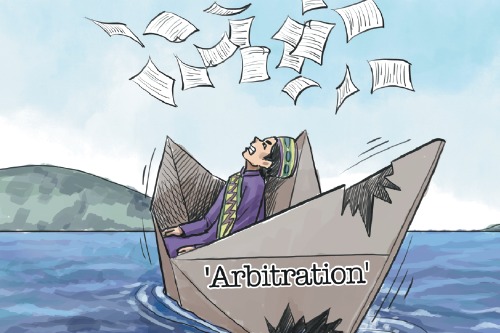The facts and China's position on China-US trade friction

IV. The trade bullyism practices of the US administration
As the key builder of the international economic order and a major participant in the multilateral trading regime after the Second World War, the US should have taken the lead in observing multilateral trade rules and properly handling trade frictions with other WTO members through the dispute settlement system within the WTO framework. This is what the US government explicitly pledged to the international community. However, since taking office, with a narrow focus on "America First", the new US administration has practiced unilateralism and economic hegemony, abandoned its international commitments, and provoked international trade friction around the world. This has not only undermined the interests of China and other countries, but also jeopardized the international reputation of the US itself. And above all, it has shaken the foundations of the global multilateral trading regime, which will ultimately hurt the long-term interests of the US.
1. Unilaterally provoking trade friction on the pretext of US domestic law
Citing industrial injuries and protection of intellectual property rights, the current US administration regularly circumvents the WTO's dispute settlement system and provokes international trade friction merely using US domestic law as a pretext, initiating a host of investigations under the auspices of Section 232, Section 201 and Section 301. These investigations involve selective use of evidence and arbitrary conclusions. Without WTO authorization, the US has illegally imposed punitive, hefty tariffs on other WTO members, which is a serious breach of the most fundamental and central WTO rules and disciplines, including the most-favored-nation treatment and tariff binding. Such unilateralist actions have harmed the interests of China and other WTO members. More importantly, they have undermined the authority of the WTO and its dispute settlement system, and exposed the multilateral trading system and international trade order to unprecedented risks.
The US administration has conducted Section 232 investigations against the products of multiple countries, abusing the concept of "national security" for trade protectionism. In April 2017, on the basis of Section 232 of its Trade Expansion Act of 1962, the US administration initiated Section 232 investigations 53 against the steel and aluminum products of China and other major economies, citing "national security" reasons. In March 2018, based on the conclusions of these unilateral investigations, the US announced 25 percent tariffs on steel and 10 percent on aluminum imports, incurring widespread opposition and retaliation. On April 5, 2018, China took the lead to bring the case of US Section 232 measures against steel and aluminum to the WTO. Following the US announcement on the resumption of tariffs against EU steel and aluminum products effective from June 1, the EU struck back and appealed to the WTO, charging the US with violation of WTO rules. European Commissioner for Trade Cecilia Malmstrom said that the US was playing "a dangerous game", and the EU would be accepting these illegal tariffs if it did not respond. By August 2018, nine WTO members have litigated at the WTO over the Section 232 measures on steel and aluminum. In July 2018, the US administration initiated another round of Section 232 investigations on imported automobiles and auto parts, again on the grounds of "national security".
It is self-evident that steel and iron are basic raw materials for manufacturing, and automobiles are ordinary consumer goods. It is absurd to link them to "national security". Chad Bown, senior fellow of the Peterson Institute for International Economics, noted that the capacity utilization rate of the US automobile industry was over 80 percent and about 98 percent of US passenger vehicle imports were from the EU, Japan, Canada, the ROK and Mexico. Therefore, initiating the investigations on the ground that automobile imports impair US national security is baseless. 54 The US administration's arbitrary expansion of the scope of national security has no theoretical or historical logic. Essentially, it is all about using the executive power of the US President provided for by the relevant sections of certain law to circumvent regular legal restrictions to practice trade protectionism.


































